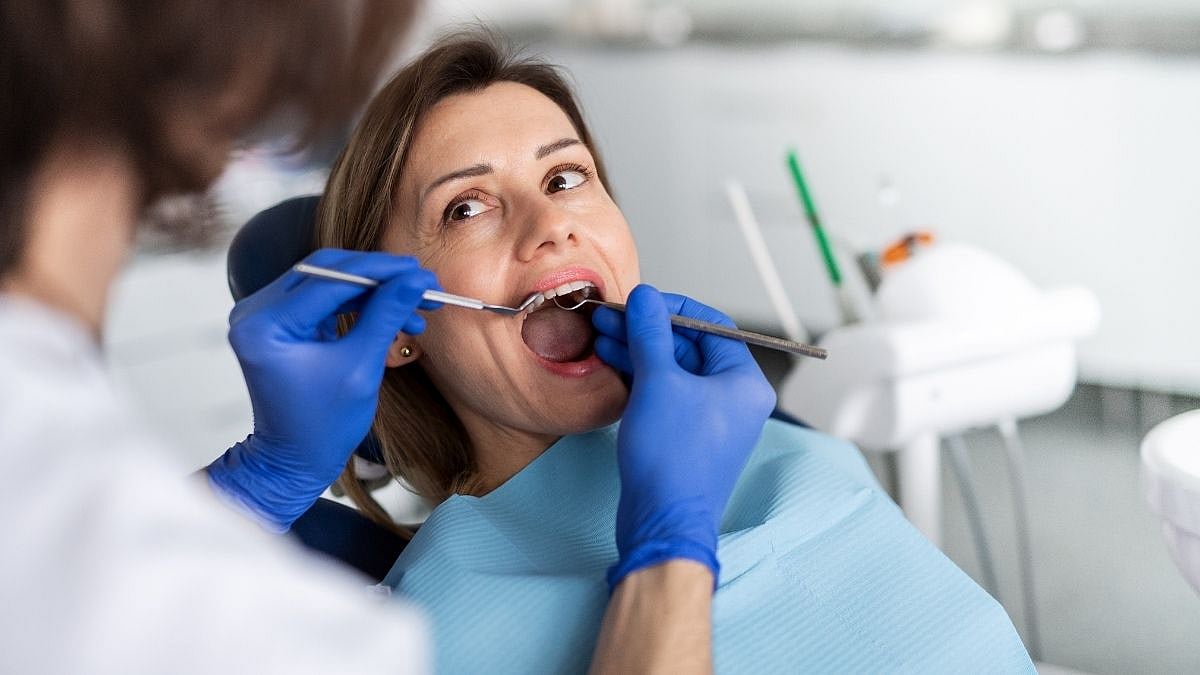Bleeding gums before your period? Sore spots in your mouth that come and go? Dry mouth after starting the pill? Most women brush it off — but your body is telling you something.
The reality is this: your menstrual cycle and oral contraceptives are deeply linked to your oral health. And yet, just like most of women’s health, this connection is rarely discussed, let alone explained! It’s time we changed that.
Your mouth is a hormone barometer
Throughout a woman’s cycle, fluctuating levels of estrogen and progesterone impact blood flow and inflammation — including in the gums. These changes may seem subtle but can show up as:
• Swollen, tender gums around ovulation or just before your period
• Bleeding gums when brushing during PMS
• Mouth ulcers or canker sores around menstruation
• Bad breath or metallic taste during hormonal shifts
This isn’t a coincidence — it’s a biological response. Research confirms that the soft tissues of the mouth are hormone-responsive. That means your gums, your salivary glands, even your tongue — all are influenced by your cycle.
And yet, most women don’t know that hormonal gingivitis is a real, recognized condition.
Birth control & your gums
Oral contraceptives — whether combined pills, progestin-only pills, or hormone-based IUDs — mimic pregnancy-like hormonal states in small doses. But they also:
• Increase inflammation in gum tissues
• Reduce natural saliva flow (leading to dry mouth)
• Alter the bacterial environment in your mouth
This trifecta can quietly accelerate plaque buildup, gum disease, and even cavities, especially if oral hygiene isn’t adjusted accordingly.
In fact, a 2021 review by the American Academy of Periodontology confirmed that long-term contraceptive use is associated with higher rates of periodontal ( teeth supporting gums, bone etc ) inflammation.
Still, this side effect is often missing from contraceptive counseling sessions.
What every woman should know
If you’re menstruating or using hormonal birth control, here are 5 oral health tips that can protect your long-term wellness:
Track your symptoms: Keep a monthly journal of oral changes like ulcers, bleeding gums, or dryness. You’ll start to notice a pattern.
Switch your brush pre-period: Use an ultra-soft toothbrush and non-alcoholic rinse during PMS to reduce sensitivity and inflammation.
Hydrate + remineralize: Hormonal shifts can demineralize enamel. Use fluoride or hydroxyapatite toothpaste and increase your water intake.
Don’t skip dental visits: Let your dentist know if you’re on birth control — it matters for gum treatment planning.
Try oral probiotics: They help rebalance your oral microbiome, especially during hormonal fluctuations.
A Bigger Picture
We now understand that oral inflammation doesn’t stay in the mouth. It affects systemic inflammation, impacts fertility, and plays a role in health of the future generations .
As a dental surgeon and a strong advocate for women’s wellness, I believe every woman deserves healthcare that acknowledges her full biology — not just her teeth.
As World’s first women oral care specialist, At Quintessence Smiles, we go beyond brushing. We look at how your cycle, contraception, and hormones are working in sync with your oral health — and we create personalized care around it.
We’re also proud to offer free consultations for young girls and women navigating hormonal changes — because we believe knowledge at the right time can change a lifetime.
If you’ve ever felt like your oral symptoms were “in your head,” know this: they’re real. And they’re valid.
Your mouth remembers your hormones, your emotions, your choices — and it deserves care that’s just as intelligent and dynamic as you are.










